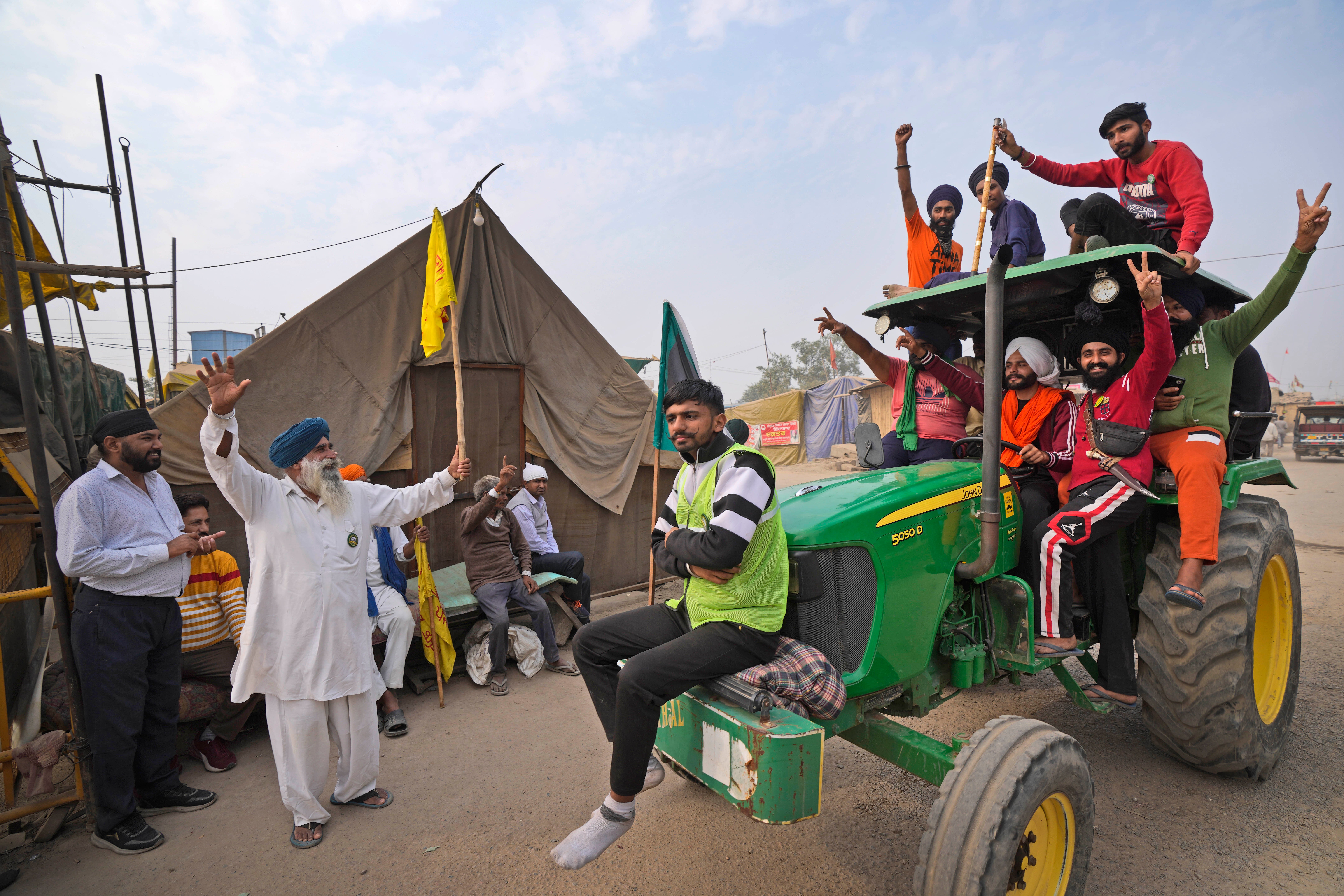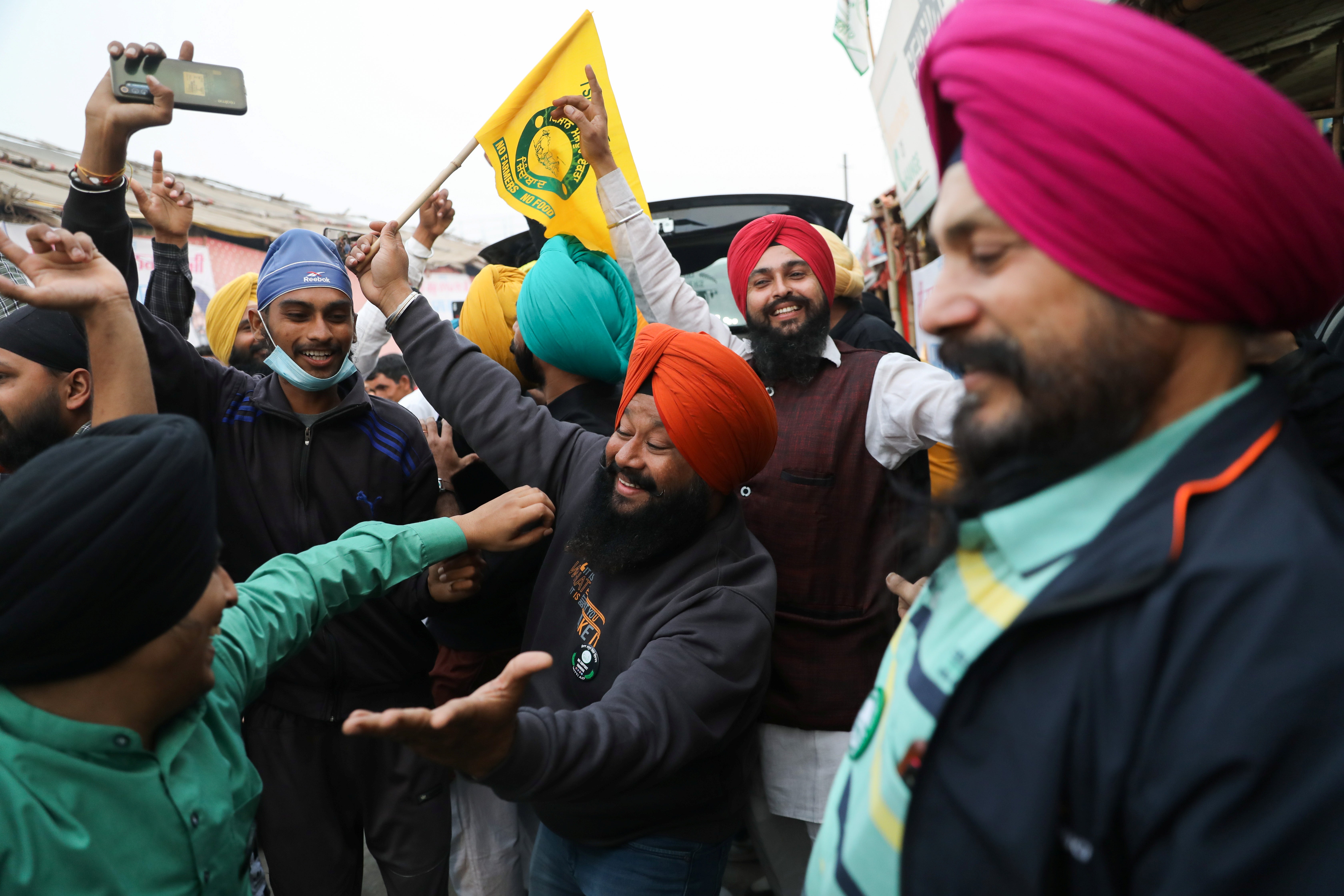Why Indian PM Narendra Modi is repealing contentious farm laws now
Narendra Modi’s U-turn after a year of farmer protests is considered a political move ahead of key Indian elections next year, Arpan Rai reports from Delhi


More than a year after passing three contentious farm laws, Indian Prime Minister Narendra Modi decided to repeal the legislation that had sparked huge protests and saw the roads leading to India’s national capital blockaded by tens of thousands of farmers.
Since November 2020, Indian farmers from the northern states of Punjab and Haryana refused to budge despite the Covid-19 pandemic, extreme temperatures, and heavy rains. The unprecedented sit-in protest caused huge physical disruption, blocked the ruling Bharatiya Janata Party (BJP)’s legislative agenda, and led to the deaths of hundreds of farmers.
Ultimately, Mr Modi blinked first.
Apologising to the country in his address on Friday, Mr Modi said: “I want to say with a sincere and pure heart that maybe something was lacking in our efforts that we could not explain the truth to some of our farmer brothers. Let us make a fresh start.”
“I want to tell you that we have taken the farm laws back. We are repealing the farm laws,” he announced.
While this is a victory for who said the reforms would hurt their income and livelihoods and leave them at the mercy of corporate interests, analysts have questioned the timing of the U-turn ahead of upcoming elections.
The BJP has been called “anti-farmer” by the protesters, which does not bode well in a country that relies so heavily on takes such pride in agriculture.
The repeal of the three laws - which disrupted the established network of state-owned local wholesale markets and replaced them with free markets - is definitely political, said Dr Anil Ghanwat, a member of India’s Supreme Court-appointed panel for looking into the farm laws.
Mr Modi’s administration made the decision because it realised it could not appease the farmers, said Mr Ghanwat, who leads a farmers union in western India.
“Had there been any other reason for withdrawing these laws, it would have already happened within weeks of introducing them. For 11 months, the government remained firm on its stand of not repealing the laws, it even held consultations with farmers but we all know it failed. It looks like they don’t want any damage in the upcoming elections,” he said, adding that he was disappointed to see political priorities take precedence over farming reforms.

India’s two most prominent states – Punjab and Uttar Pradesh – are headed for elections in less than five months.
Mr Modi’s ruling Bharatiya Janata Party (BJP) is an incumbent in Uttar Pradesh – India’s most populous state and dubbed as a stepping stone to winning federal elections in 2024.
In Punjab, it hopes to win power from the Opposition Congress party , which has held the state for four years.
Indian agricultural economist Ashok Gulati said that repealing the laws was a tactical move because the BJP sees an opportunity to benefit from the ongoing rift in Congress, which has led to the departure of sitting chief minister Captain Amarinder Singh.
“We know what is happening in Punjab politics today. Now, there is a case where Captain Singh has openly said that he would like to get the support of BJP, provided the farm laws issue is resolved,” Mr Gulati told The Independent.
The BJP could well put its political might behind Mr Singh, and some more regional leaders from the Akali Dal party or Congress may join them, according to Mr Gulati, who has served as the former chairman of the Commission for Agricultural Costs and Prices (CACP), the advisory body of the Indian government on food supplies and pricing policies.

“There could be a new party and who knows who comes into power. Think of a scenario where Captain Singh is back in power and Mr Modi’s party gets a deputy chief minister position. It’s just speculation but very likely,” he said.
“The elections in Uttar Pradesh and also in Punjab are very critical and for a politician, political power is the first thing,” Mr Gulati added.
In the end, the farmers’ perseverance paid off.
“I think the party IT cell tried hard to discredit and break the spirit of the agitation more than it did to convince the people towards their point of view. The repeal of the farm laws is a fallout of a successful agitation,” Ajay Vir Jakhar, chairperson of farm group Bharat Krishak Samaj, told The Independent.
But Mr Modi’s U-turn means agricultural reforms in India are unlikely in the near future, according to Mr Ghanwat, who said no political party would dare revisit farm laws following this saga.






Join our commenting forum
Join thought-provoking conversations, follow other Independent readers and see their replies
Comments